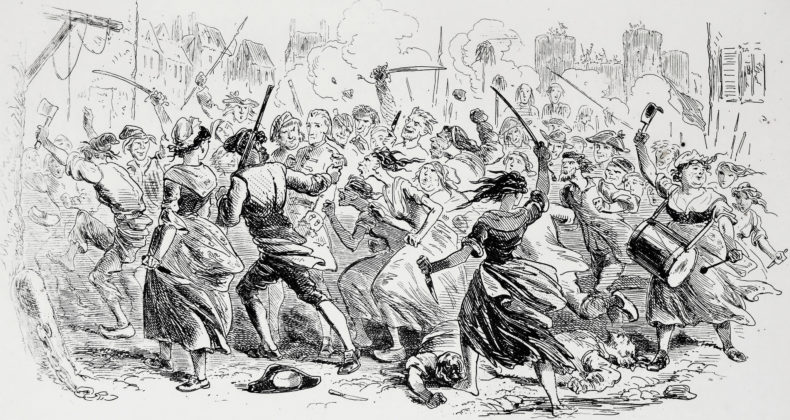A Tale of Two Cities: not just a great opening line, also a great opening paragraph

Even people with only the most cursory knowledge of the writings of Charles Dickens usually know about the fantastic start to A Tale of Two Cities: “It was the best of times, it was the worst of times”.
Never having read the book, I recently decided to put that right and discovered just how evocative the rest of the opening paragraph is.
Not only is the writing wonderfully paced, with clever use of gentle repetition at the start of phrases, but the images invoked could apply to many other eras, including our own:
It was the best of times, it was the worst of times, it was the age of wisdom, it was the age of foolishness, it was the epoch of belief, it was the epoch of incredulity, it was the season of Light, it was the season of Darkness, it was the spring of hope, it was the winter of despair, we had everything before us, we had nothing before us, we were all going direct to Heaven, we were all going direct the other way – in short, the period was so far like the present period, that some of its noisiest authorities insisted on its being received, for good or for evil, in the superlative degree of comparison only.
It is also an example of how the very best can break the rules the rest of us should wisely try to live by. How many English teachers would recommend writing such a long sentence? Yet even to modern eyes it flows easily and clearly. It reminds me too of the writing style of JK Galbraith. He also wrote sentences of such lengths that in the hands of a mere mortal such as myself would be cumbersome and tortuous. Yet in the hands of the brilliance of a Galbraith or a Dickens that length provides brilliance and clarity.
As for the last sentence in A Tale of Two Cities, that too is a strong contender for the best final sentence of a book. (Don’t worry if you haven’t yet read the book: revealing the last line below won’t spoil the suspense for you if you do go on to read the whole thing.)
The preceding plot gives the final words their emotional impact. But even without knowing the events that trigger them, it is easy to admire the beauty of the words and the delicate balancing of the phrasing:
It is a far, far better thing that I do, than I have ever done; it is a far, far better rest I go to than I have ever known.
FOOTNOTE: The myth about Dickens’s wordiness
As you’ll have noticed from the opening sentence to A Tale of Two Cities, Charles Dickens was certainly not afraid of piling on the words at times. Brevity and simplicity are the hallmarks of many great authors, but not him.
There is a bit of an urban myth that this was due to money: that Dickens was paid by the word and so wrote more.
That’s not true, though there is a germ of truth hidden in the myth, as this excellent Twitter thread highlighted.
Alexandre Dumas was paid by the line, which helps explain his love of short, punchy dialogue that racks up the line count very quickly. Charles Dickens too had a pay-by-quantity incentive, but it was pay by instalment – and of course, more verbosity helps with getting to the end of an instalment.